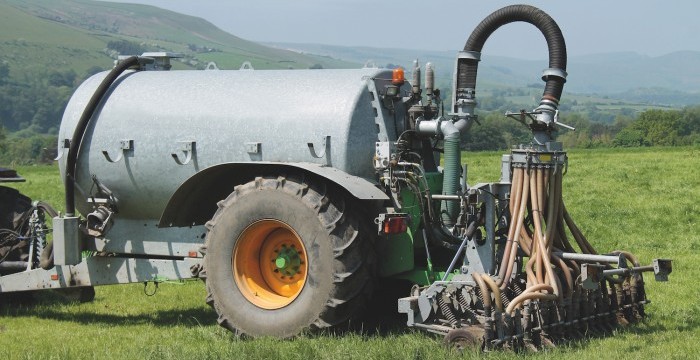The NPA has warned that the Environment Agency’s long-awaited statement on the Farming Rules for water could have a significant impact on farmers.
On Tuesday, the agency clarified the requirements of the Farming Rules for Water – Rule 1, which relates to the application of organic materials in England.
It has published a Regulatory Position Statement (RPS) that allows farmers to apply organic manure to agricultural land that may exceed the needs of the soil or crop on that land, but must not cause a risk of pollution. It requires farmers to plan nutrient applications of organic material (livestock manures and slurries, digestate and biosolids) and manufactured fertiliser to crops, taking into account risks to water from nitrogen (N) and phosphorous (P).
The agency said the RPS will enable current practice to continue in most situations and alleviate the immediate concerns of those managing large quantities of organic material.
However, following initial consultation with members, NPA policy services officer Lizzie Wilson said the association was concerned that this will not be the case as the RPS contains elements that could have a significant impact on pig and arable farmers.
Many pig producers will not be able to comply with some of the conditions, such as preventing application on a sandy or a shallow soil. There is also a new application limit of 5kg/ha of nitrate/nitrogen to be leached, which producers can calculate using Planet/Manner-NPK.
The former means, therefore, that East Anglian producers will still be unable to apply FYM, whilst the latter will severely restrict the application of slurry this autumn, Mrs Wilson said.
“NPA have been involved in discussions on the change in practice required for some time and highlighted the potential significant impact on nutrient planning, diffuse pollution and ultimately farming businesses,” she added.
“We are pleased, therefore, that the Environment Agency has considered industry’s concerns and provided a degree of clarity on the spreading of slurry and FYM ahead of the autumn application period.
“However, this will only resolve the issue for some producers and for this growing season only. We are concerned that the majority of producers will still not be able to use the RPS.
“We will continue to engage with other industry stakeholders, the Environment Agency and with government to find a long-term, more sustainable solution beyond spring 2022 that benefits both farmers and the environment.”
NFU Deputy President Stuart Roberts described the announcement is a ‘missed opportunity to provide much needed clarity for farmers’ who have significant concerns on how ‘rule 1’ of the farming rules for water regulations is being interpreted.
“I am deeply disappointed with the content of the statement by the Environment Agency, which sets an idealistic and impractical barrier in many farming situations,” he said.
“We’ve made multiple approaches over the past two years urging Defra and the Environment Agency to set achievable objectives to make best use of organic manures, slurries and biowastes – this seems to have been ignored – and I am still to hear from Defra Ministers despite having written twice in recent months.
The Country Land and Business Association’s chief land use policy adviser Susan Twining said: “It is good to see that the Environment Agency has taken on board industry concerns in this latest guidance, but it is still likely to have a big impact on many businesses, both practically and economically, with little time to adapt plans for this year.
“Of course, water quality should never be compromised. A healthy water environment is key to ensuring wildlife can flourish, and everyone has their part to play.
“But further thought is urgently needed on how to balance the value of organic material for building soil health and benefits for carbon sequestration, reducing reliance on manufactured fertilisers, improving water holding capacity and associated flood risk.”




